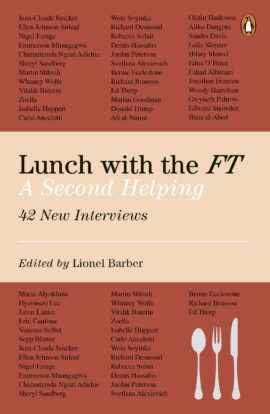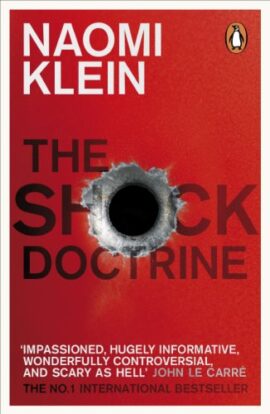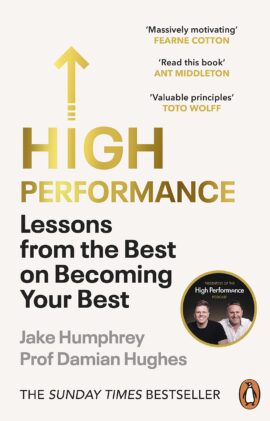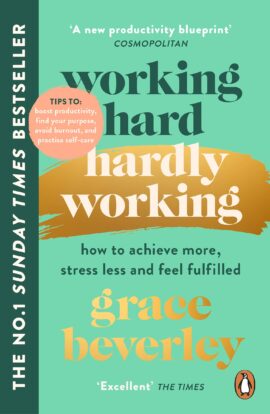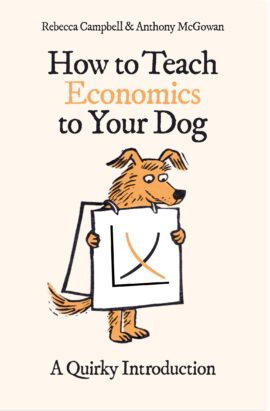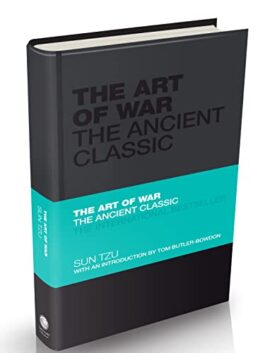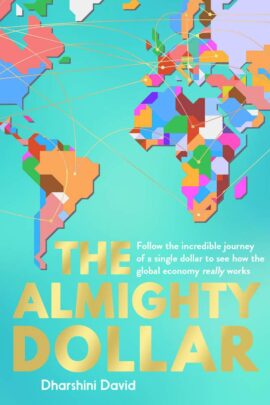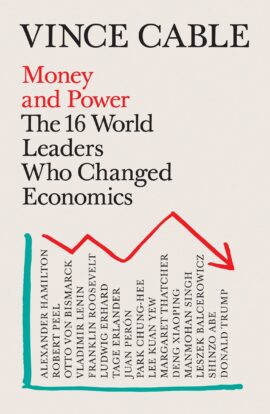«The Shock Doctrine: The Rise of Disaster Capitalism» a été ajouté à votre panier. Voir le panier
Comment dire non: Savoir refuser sans offenser
1.250,00 د.ج
9
Items sold in last 3 days
Ajouter 2.150,00 د.ج et bénéficier d'une livraison gratuite !
0
People watching this product now!
Estimated delivery dates: septembre 16, 2025 – septembre 23, 2025
Informations complémentaires
| Editeur |
|---|
Produits similaires
Lunch with the FT: A Second Helping
3.450,00 د.ج
Lunch with the Financial Times has been a permanent fixture in the Financial Times for almost 25 years, featuring presidents, film stars, musical icons and business leaders from around the world. The column is now as well-established institution which has reinvigorated the art of conversation in the convivial, intimate environment of a long boozy lunch. On its 25th anniversary, Lunch with the Financial Times 2 will showcase the most entertaining, incisive and fascinating interviews from the past five years including those with Donald Trump, Sheryl Sandberg, Richard Branson, Yanis Varoufakis, Zadie Smith, Nigel Farage, Russell Brand and David Guetta, illustrated in full colour with James Ferguson's famous portraits.
The Shock Doctrine: The Rise of Disaster Capitalism
3.450,00 د.ج
Around the world in Britain, the United States, Asia and the Middle East, there are people with power who are cashing in on chaos: exploiting bloodshed and catastrophe to brutally remake our world in their image. They are the shock doctors. Thrilling and revelatory, "The Shock Doctrine" cracks open the secret history of our era. Exposing these global profiteers, Naomi Klein discovered information and connections that shocked even her about how comprehensively the shock doctors' beliefs now dominate our world - and how this domination has been achieved. Raking in billions out of the tsunami, plundering Russia, exploiting Iraq - this is the chilling tale of how a few are making a killing while more are getting killed.
High Performance
2.530,00 د.ج
The phenomenal Sunday Times bestseller'Massively motivating' Fearne Cotton'A wealth of wisdom' Vex King'Read this book' Ant Middleton High performance isn't born. It's made. This book uncovers the eight essential habits of the world's leading sportspeople, coaches and entrepreneurs. From taking responsibility for your situation to finding your 'Trademark Behaviours', it reveals how the world's highest-achieving people unlocked their potential - and how you can too. Anyone can learn the secrets of high performance.'Full of valuable principles with real-world relevance to people's everyday lives' Toto Wolff'So many different lessons from so many remarkable people' Adam Peaty Drawing on conversations with... Dina Asher-Smith | Steven Bartlett | Tom Daley | Steven Gerrard | Evelyn Glennie | Ole Gunnar Solskjaer | Kelly Holmes | Chris Hoy | Eddie Jones | Siya Kolisi | Frank Lampard | Jo Malone | Matthew McConaughey | Ant Middleton | Tracey Neville | Robin Van Persie | Mauricio Pochettino | Gareth Southgate | Holly Tucker | Jonny Wilkinson | Clive Woodward | Toto Wolff and many more...
Working Hard, Hardly Working
2.530,00 د.ج
THE #1 SUNDAY TIMES BESTSELLER'Excellent.' The Times'Offers a fresh take on how to create your own balance, be more productive and feel fulfilled in the high-pressure social media age.' Cosmopolitan, 12 BEST NEW BOOKS TO READ'Serves some serious inspiration for the business-minded.' Bustle, TOP DEBUT BOOKS OF 2021'Pinpoints and unpacks the confusing and impossible messages we are all fed about modern work, how we are supposedly meant to be "nailing" all areas of our life all at once.' Emma Gannon________________We all know the pressure of feeling like we should be grinding 24/7 while simultaneously being told that we should 'just relax' and take care of ourselves, like we somehow have to decide between success and sanity. But in today's complex working world, where every hobby can be a hustle and social media is the lens through which we view ourselves and others, this seemingly impossible choice couldn't be further from our reality.In Working Hard, Hardly Working, entrepreneur and self-proclaimed 'lazy workaholic' Grace Beverley challenges this unrealistic and unnecessary split, and offers a fresh take on how to create your own balance, be more productive and feel fulfilled.________________A BOOK TO HELP YOU:Create your own Productivity Method: Work smart and do more of what you loveMake your routine work for you: Optimise your habits and reap the benefitsUnderstand your value: Get into your flow and enjoy your everydayEngage in effective self-care: How stepping back can help you move forwards
How to Teach Economics to Your Dog: A Quirky Introduction
2.300,00 د.ج
A fun take on some of the biggest questions in economics, made accessible for non-experts (and dogs)Monty is a dog, not a financial genius, but economics still shapes his everyday life.Over the course of seventeen walks, Dr Rebecca Campbell chews over economic concepts and investigates how they apply to our lives – people and mutts alike. There are no graphs, no charts (Monty can’t read them) and definitely no calculus!How to Teach Economics to Your Dog tackles the knotty question of what economics actually is. Is it a mathematical science like physics? Or a moral and philosophical investigation of how societies should manage scarce resources?Along the way we meet some of the great thinkers from Adam Smith to Thomas Piketty, and ponder questions such as: What on earth does quantitative easing mean? And why are some countries so much richer than others?
The Art of War: The Ancient Classic
2.760,00 د.ج
The original and bestselling leadership book!Sun Tzu's ideas on survival and success have been read across the world for centuries. Today they can still be applied to business, politics and life. The Art of Wardemonstrates how to win without conflict. It shows that with enough intelligence and planning, it is possible to conquer with a minimum of force and little destruction.While most of us will never find ourselves in real battle situations, we all need strategies to operate effectively in work, love and life, we need to be able to manage conflict, and we need to be skilled at dealing with people. The Art of War is a time-tested resource for 'victory' in each of these areas, and has been proven over time.This luxury hardback edition includes an introduction by Tom Butler-Bowdon that draws out lessons for managers and business leaders, and highlights the power of Sun Tzu's thinking in everyday life.
The Almighty Dollar: Follow the Incredible Journey of Single Dollar to See How the Global Economy Really Works
2.530,00 د.ج
Have you ever wondered why we can afford to buy far more clothes than our grandparents ever could ... but may be less likely to own a home in which to keep them all? Why your petrol bill can double in a matter of months, but it never falls as fast? Behind all of this lies economics. It's not always easy to grasp the complex forces that are shaping our lives. But by following a dollar on its journey around the globe, we can start to piece it all together. The dollar is the lifeblood of globalisation. Greenbacks, singles, bucks or dead presidents: call them what you will, they are keeping the global economy going. Half of the notes in circulation are actually outside of the USA - and many of the world's dollars are owned by China. But what is really happening as our cash moves around the world every day, and how does it affect our lives? By following $1 from a shopping trip in suburban Texas, via China's central bank, Nigerian railroads, the oilfields of Iraq and beyond, The Almighty Dollar reveals the economic truths behind what we see on the news every day. Why is China the world's biggest manufacturer - and the USA its biggest customer? Is free trade really a good thing? Why would a nation build a bridge on the other side of the planet? In this illuminating read, economist Dharshini David lays bare these complex relationships to get to the heart of how our new globalised world works, showing who really holds the power, and what that means for us all.
Money and Power: The World Leaders Who Changed Economics
2.530,00 د.ج
Through economics, our politicians have the power to transform people's lives for better or worse. Think Deng Xiaoping who lifted millions out of poverty by opening up China: Franklin D Roosevelt whose 'New Deal' helped the USA break free of the Great Depression. Or Peron and his successors in Argentina who brought the country to the brink of ruin. In this magisterial history, economist and politician Vince Cable examines the legacy of 16 world leaders who transformed their countries' economic fortunes and who also challenged economic convention. From Thatcher to Trump, from Lenin to Bismarck, Money and Power provides a whole new perspective on the science of government. Examining the fascinating interplay of economics and politics, this is a compelling journey through some of the most significant people and events of the last 300 years.


